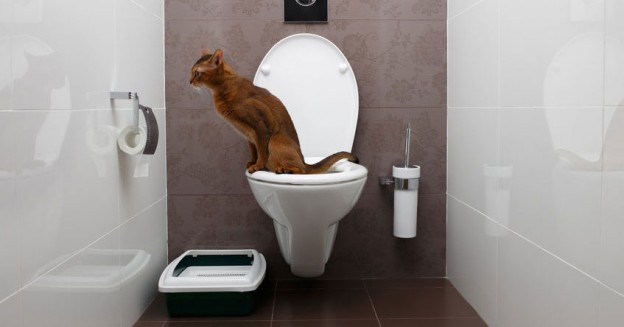This great article listed below about Can You Flush Cat Poop Down The Toilet? is incredibly enjoyable. Don't miss out on it.

Introduction
As feline owners, it's vital to bear in mind just how we throw away our feline pals' waste. While it may appear practical to flush pet cat poop down the toilet, this technique can have harmful consequences for both the atmosphere and human health.
Ecological Impact
Purging feline poop presents hazardous virus and parasites right into the water supply, positioning a substantial risk to marine communities. These pollutants can adversely impact marine life and compromise water quality.
Health and wellness Risks
Along with ecological problems, flushing cat waste can additionally posture health risks to humans. Cat feces may include Toxoplasma gondii, a parasite that can trigger toxoplasmosis-- a potentially serious health problem, especially for pregnant females and people with weakened body immune systems.
Alternatives to Flushing
Luckily, there are much safer and much more responsible means to take care of pet cat poop. Think about the complying with alternatives:
1. Scoop and Dispose in Trash
One of the most typical method of dealing with pet cat poop is to scoop it into a biodegradable bag and toss it in the trash. Make certain to utilize a committed trash inside story and get rid of the waste promptly.
2. Use Biodegradable Litter
Opt for naturally degradable pet cat litter made from products such as corn or wheat. These clutters are environmentally friendly and can be securely dealt with in the trash.
3. Hide in the Yard
If you have a backyard, consider hiding feline waste in a designated location away from vegetable yards and water sources. Be sure to dig deep sufficient to avoid contamination of groundwater.
4. Set Up a Pet Waste Disposal System
Invest in a family pet garbage disposal system particularly designed for pet cat waste. These systems utilize enzymes to break down the waste, decreasing smell and environmental influence.
Final thought
Liable animal possession prolongs past providing food and sanctuary-- it also includes correct waste management. By refraining from flushing feline poop down the commode and choosing alternate disposal approaches, we can minimize our environmental footprint and secure human wellness.
Why Can’t I Flush Cat Poop?
It Spreads a Parasite
Cats are frequently infected with a parasite called toxoplasma gondii. The parasite causes an infection called toxoplasmosis. It is usually harmless to cats. The parasite only uses cat poop as a host for its eggs. Otherwise, the cat’s immune system usually keeps the infection at low enough levels to maintain its own health. But it does not stop the develop of eggs. These eggs are tiny and surprisingly tough. They may survive for a year before they begin to grow. But that’s the problem.
Our wastewater system is not designed to deal with toxoplasmosis eggs. Instead, most eggs will flush from your toilet into sewers and wastewater management plants. After the sewage is treated for many other harmful things in it, it is typically released into local rivers, lakes, or oceans. Here, the toxoplasmosis eggs can find new hosts, including starfish, crabs, otters, and many other wildlife. For many, this is a significant risk to their health. Toxoplasmosis can also end up infecting water sources that are important for agriculture, which means our deer, pigs, and sheep can get infected too.
Is There Risk to Humans?
There can be a risk to human life from flushing cat poop down the toilet. If you do so, the parasites from your cat’s poop can end up in shellfish, game animals, or livestock. If this meat is then served raw or undercooked, the people who eat it can get sick.
In fact, according to the CDC, 40 million people in the United States are infected with toxoplasma gondii. They get it from exposure to infected seafood, or from some kind of cat poop contamination, like drinking from a stream that is contaminated or touching anything that has come into contact with cat poop. That includes just cleaning a cat litter box.
Most people who get infected with these parasites will not develop any symptoms. However, for pregnant women or for those with compromised immune systems, the parasite can cause severe health problems.
How to Handle Cat Poop
The best way to handle cat poop is actually to clean the box more often. The eggs that the parasite sheds will not become active until one to five days after the cat poops. That means that if you clean daily, you’re much less likely to come into direct contact with infectious eggs.
That said, always dispose of cat poop in the garbage and not down the toilet. Wash your hands before and after you clean the litter box, and bring the bag of poop right outside to your garbage bins.
https://trenchlesssolutionsusa.com/why-cant-i-flush-cat-poop/

As a passionate person who reads on Can You Flush Cat Poop Down The Toilet?, I thought sharing that piece of content was a good thing. I beg you take the opportunity to share this entry if you liked it. Thanks a bunch for your time. Come back soon.
Schedule And Pricing
Comments on “Potential Risks of Flushing Cat Poop Down Your Toilet - Tips for Better Disposal”